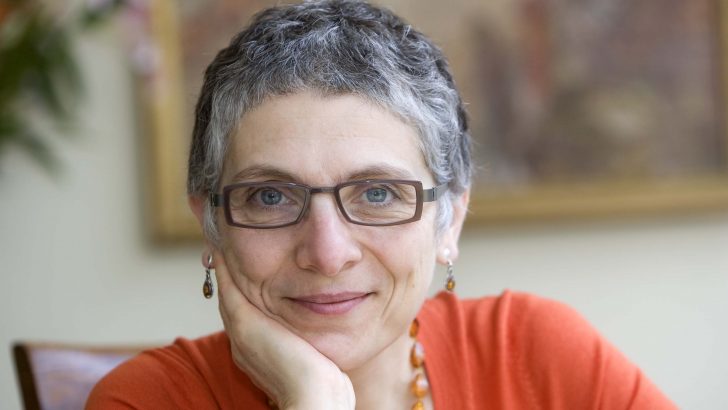I’ve long admired the media work of Michael Buerk, and his show The Moral Maze last Saturday on BBC Radio 4 was a most thorough, insightful, and civilised discussion – people were listening to each other!
The topic was ‘moral progress’, especially in the light of current Westminster controversies. The format was unusual enough – a panel of four discussing the topics to start with, followed by a series of ‘witnesses’ who were who were quizzed by the panel. Even Buerk’s introduction was striking, with lots of probing questions, e.g. did the ‘current bout of moralising’ show ‘heightened ethical sensibility’ or a “moral mood swing that cannot distinguish between the harassment and assault that was always deplorable and a clumsiness that is embarrassing but essentially harmless”.
Melanie Phillips of The Times thought there was a ‘moral confusion’ in society, with some recent revelations ‘appalling’ and some ‘exaggerated’. Matthew Taylor, CEO of the Royal Society for the Encouragement of Arts (RSA), thought the effects of the controversies were mainly positive and that in the long term our morality improves.
Anne McElvoy of The Economist agreed that overall there was moral progress despite bumps and ‘three-point turns’ in the road. Claire Fox of the Institute of Ideas was wary of confusion between moral progress and “puritanical intolerance”.
First witness Peter Hitchens said he always disapproved of the predatory behaviour currently in the news and of the increasing coarseness of society and media in general, but thought recent reactions smacked too much of the “pleasant occupation” of criticising the wrongdoings of others, a desire to appear to be good rather than to be good.
Former MP Matthew Paris agreed reaction was overdone, but was more optimistic about good outcomes. The pendulum swinging too far either way was partly the price of moral progress. Prof. Roger Trigg of Warwick University thought there was too much aggression and selfishness, with society not so cohesive anymore.
Dr Clare Carlisle of King’s College thought we lived in a fairer society, but also that speaking in terms of decline or progress was too simplistic. She saw herself in a position between absolutism and relativism, but, as Buerk later pointed out, that in itself is relativistic!
Other debates, interviews and discussions are worth catching up on. On Tuesday of last week, on Today With Sean O’Rourke there was an absorbing interview with Amy Barrett (née O’Keefe), whose father had just been jailed for abusing her and her sister Melissa. It was a harrowing case, but what shone through was her calm confidence, her love for her own husband and children, her religious faith, and, despite all, her ongoing love for her father.
Protest
A few independent voices figured on Newstalk programmes. I don’t always agree with journalist Ian O’Doherty, whether because of tone or content, but sometimes he plays the useful role of the boy who cried ‘the emperor has no clothes’. On Today With Pat Kenny on Wednesday of last week, he reviewed the US President’s first year. He reckoned Trump, whom he described as ‘a bull in a china shop’, had done better than expected and not as bad as some had hoped. He identified ‘Trump derangement syndrome’, especially in the Irish media, and decried a liberal anniversary protest event ‘scream helplessly at the sky day’!
Also on Wednesday, Anne Widdecombe, columnist and former Conservative Party MP, turned up on Newstalk’s new Lunchtime Live. Interviewed by Ciara Kelly, she saw a lack of proportionality in the current ‘Sexminster’ controversies and didn’t think it useful to conflate trivial sexual advances with sexual assault, which always had to be taken very seriously.
The most controversial of the controversialists, Katie Hopkins, appeared on the same show last Thursday, promoting in a rather ironic and self-deprecating tone her new book, the aptly titled Rude. I was expecting sparks, but surprisingly it was a calm, interesting discussion for the most part, about, among other things, Brexit and the rise of nationalism, though I think she was simplistic about the consequent prospects of a united Ireland. The discussion got a little frosty only when the immigrant issue was discussed.
Finally, it was good to see Peadar Tóibín TD on The Week in Politics (RTÉ 1) last Sunday, calling out the Oireachtas Committee on its bias in relation to the Eighth Amendment. Looks like he’s on a collision course with his party, Sinn Féin, on this one.
Pick of the week
Evil – A Would You Believe? Special
RTÉ 1, Sunday, November 19, 10.35 pm
Mick Peelo and Alan Robinson examine the meaning and nature of evil.
CATHOLIC LIVES
EWTN, Monday, November 20, 10 am
David Kerr speaks to Dame Nuala O’Loan about her role as Police Ombudsman in Northern Ireland.
Knock Airport
be3, Wednesday, November 22, 10.00 am
Series going behind the scenes at Ireland West Airport Knock featuring secular and religious matters.


 Brendan O’Regan
Brendan O’Regan Melanie Phillips appeared on BBC's The Moral Maze
Melanie Phillips appeared on BBC's The Moral Maze 